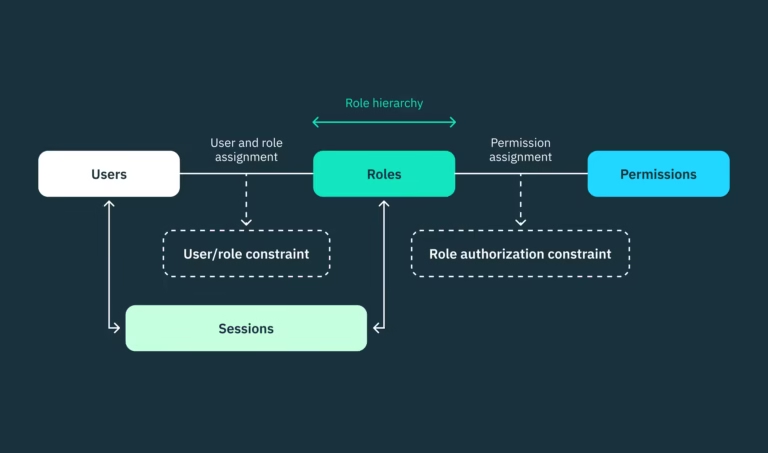
Introduction to Government Careers
Government careers represent a vital segment of employment, offering stability and an array of benefits that can significantly enhance the quality of life for professionals in this field. These careers span various sectors, including healthcare, education, law enforcement, and public administration, and include roles at local, national, and international levels. One of the most appealing aspects of government jobs is their inherent job security, often considered superior to that found in the private sector. This security stems from the understanding that government entities are generally less susceptible to market fluctuations and economic downturns.
The significance of government roles extends beyond mere employment; they fundamentally shape the functioning of society. Individuals in these positions contribute to the crafting and implementation of policies that impact the lives of citizens, thus playing a crucial role in the governance and welfare of the community. This can be particularly rewarding for those who desire to make a difference and be part of meaningful change.

In many instances, government jobs are also associated with competitive salaries that can rival or surpass those offered in the private sector. These positions often come with comprehensive benefits packages, including healthcare, retirement plans, and paid leave. Moreover, governments frequently emphasize professional development and provide pathways for advancement, encouraging employees to hone their skills and grow within the organization. As a result, high-paying government jobs have become highly attractive to job seekers worldwide, drawing individuals eager to secure a stable and fulfilling career, while also contributing to the betterment of society.
Criteria for High-Paying Government Jobs
When evaluating high-paying government jobs, several criteria emerge as pivotal in determining the attractiveness of these positions. One primary factor is educational requirements. Positions that necessitate advanced degrees, such as a Master’s or Ph.D., tend to offer higher salaries. For example, senior roles in public health, urban planning, or diplomatic services often mandate specialized education, which correlates to increased responsibility and compensation. Countries like the United States and Canada frequently emphasize advanced education as a prerequisite for roles that lead to lucrative salaries.
Another significant criterion is the level of responsibility associated with the position. High-ranking officials, such as government ministers or agency heads, bear a substantial workload that includes making critical decisions impacting public policy. These positions not only demand vast experience but also require a deep understanding of complex governmental operations, often rewarding individuals with significant financial incentives. For instance, in Australia, senior executives within government departments may enjoy salaries exceeding those in the private sector due to the critical nature of their roles.
Moreover, the necessity of specialized skills plays a crucial role in determining salary levels across government jobs. Roles in cybersecurity, data analytics, and international relations often attract higher pay as these skills are in limited supply and critical to national security and governance. The intelligence agencies in countries like the United Kingdom and Israel particularly emphasize this criterion, offering competitive salaries to attract top talent in these essential fields. Additionally, positions in scientific research and environmental protection are becoming increasingly well-compensated as governments prioritize sustainability and innovation.
Overall, while the definition of a ‘high-paying’ government job may vary internationally, the combination of educational credentials, levels of responsibility, and specialized skill sets remains constant across borders, underpinning the fiscal rewards of such careers.
High-Paying Government Jobs Overview
The landscape of employment opportunities within government sectors remains diverse and enticing, particularly for individuals seeking high-paying positions. A variety of roles across different departments not only offer competitive salaries but also provide job stability, benefits, and the chance to make a meaningful impact on society. This blog post will delve into the top ten high-paying government jobs that attract ambitious professionals worldwide.
First on the list is the role of a Diplomat, which involves representing a nation’s interests abroad. Diplomats engage in negotiations, build international relations, and often receive lucrative compensation packages reflecting the importance of their positions. Next, we explore roles in the Intelligence Community, where professionals work on national security, data analysis, and intelligence operations, against a backdrop of national interest and safety. These challenging jobs often come with high salaries reflecting the specialized skills required.
Another significant role is that of a Federal Attorney, which entails working within governmental legal frameworks. Federal attorneys represent government agencies in legal matters, and their expertise is compensated generously due to the complexities of legal regulations. Additionally, we will look at the responsibilities of a Health Services Manager, coordinating public health programs and policies, ensuring communities are supported in health-related endeavors.

As we progress, we will also examine career paths such as a Government Engineer, a Manager of Public Relations, and a Chief Financial Officer in the public sector. Each of these positions comes with high salary potential and contributes substantially to the functioning of government enterprises. Lastly, we will discuss the role of a City Manager, overseeing city operations effectively and efficiently while ensuring proper allocation of resources, further highlighting the opportunities available within governmental structures. Stay tuned as we dive deeper into these satisfying and prosperous career options.
Senior Government Officials
Senior government officials play a crucial role in shaping national policies and overseeing the implementation of public programs. They are entrusted with significant decision-making power and are instrumental in influencing legislative matters, budget allocations, and administrative functions. These officials often operate at the highest levels of government, including positions such as ministers, secretaries, and department heads.
The average salary for senior government officials varies globally, often reflecting the economic conditions and government budgetary constraints in each country. In the United States, for instance, cabinet members can earn upwards of $200,000 annually, while their counterparts in other nations may have similar compensation structures, subject to local economic factors. Additionally, these roles frequently come with benefits such as pensions, health insurance, and substantial retirement plans, further enhancing their overall remuneration packages.
To excel in these high-ranking positions, senior government officials typically require a blend of skills, including strong analytical capabilities, excellent communication and leadership abilities, and in-depth understanding of public administration. Many have advanced degrees in fields such as political science, law, public administration, or economics, which enhance their qualifications and competencies. Most career paths leading to such influential positions begin with roles in governmental departments, legislative bodies, or political campaigns, allowing individuals to cultivate the essential experience and networks necessary to ascend to higher ranks.

Noteworthy examples of senior government officials include heads of state and government, such as Angela Merkel, former Chancellor of Germany, who had a profound impact on European politics. Similarly, Jacinda Ardern, former Prime Minister of New Zealand, garnered global attention for her decisive leadership during crises. These figures exemplify the power and responsibility that come with being a senior government official, underscoring their vital role in the governance and administration of their respective countries.
Ambassadors and Diplomats
Ambassadors and diplomats serve as vital representatives of their home countries, playing a crucial role in establishing and maintaining diplomatic relations with other nations. Their primary responsibility lies in negotiating treaties, promoting national interests, and fostering cooperation among countries. Given the complexity of global affairs, these professionals require a sophisticated understanding of international relations, politics, and cultural sensitivities.
Qualifications for ambassadors and diplomats typically include advanced degrees in political science, international relations, or law, along with significant experience in foreign service or related fields. Proficiency in foreign languages is often a prerequisite, as effective communication is essential for successful negotiation and relationship-building. Additionally, possessing strong interpersonal skills, adaptability, and cultural awareness are fundamental traits for those pursuing careers in diplomacy.
The impact of ambassadors and diplomats on international relations cannot be overstated. They are pivotal in ensuring that their nations’ priorities are effectively communicated and understood. Their work often involves resolving conflicts, conducting negotiations on trade agreements, and enhancing cultural exchange programs. Through their efforts, they contribute to global stability and foster environments conducive to cooperation and understanding among diverse nations.

In terms of compensation, ambassadors and diplomats often receive lucrative salaries and benefits that reflect the demanding nature of their roles. While specific salaries can vary widely depending on the country and level of representation, many diplomats enjoy substantial remuneration packages, including housing allowances, travel benefits, and health care. The high compensation associated with these positions underscores the importance of diplomacy in the pursuit of a peaceful and prosperous international community, making it an attractive field for those aiming for a high-paying government job.
Intelligence Analysts: A Vital Component of National Security
Intelligence analysts play a crucial role in maintaining national security by interpreting and assessing information related to various threats. These professionals gather, analyze, and synthesize data from a wide array of sources, including classified documents, satellite imagery, and open-source information. Their work is instrumental in providing decision-makers with actionable insights that can significantly influence military strategies, counter-terrorism initiatives, and diplomatic efforts.
To excel in this high-stakes field, intelligence analysts must possess a diverse set of skills. Critical thinking and analytical abilities are paramount, as analysts must be adept at identifying patterns, discerning trends, and predicting future scenarios based on current intelligence. Additionally, strong communication skills are essential for presenting complex information clearly and concisely to stakeholders. Furthermore, proficiency in various technical tools and languages can enhance an analyst’s effectiveness in their role, making them a valuable asset to intelligence agencies.
The significance of intelligence analysts extends beyond immediate national security concerns; they also play a vital role in anticipating and mitigating potential threats, thereby contributing to international stability. Career paths for intelligence analysts are numerous, with opportunities available in various government agencies such as the Central Intelligence Agency (CIA), the National Security Agency (NSA), and the Federal Bureau of Investigation (FBI). Moreover, analysts may also find positions in the military or in private sector entities focused on security and risk assessment.

In terms of financial incentives, intelligence analysts often receive competitive salaries that reflect their expertise and the vital nature of their work. According to recent data, entry-level positions may command salaries starting around $60,000, while experienced analysts can earn upwards of $100,000, especially those taking on senior roles or specializing in high-demand areas. The blend of intellectual challenge and substantial remuneration makes a career as an intelligence analyst an appealing option for many aspiring professionals.
Judges and Magistrates
Judges and magistrates play a pivotal role in the judiciary, serving as the backbone of legal systems across various countries. They are entrusted with interpreting the law, ensuring justice is served, and protecting the rights of individuals. Their decisions can profoundly affect the lives of those who come before them, encompassing everything from minor infractions to significant criminal cases and civil disputes.
To qualify for a judgeship, candidates typically must possess a law degree and extensive experience in the legal field. Many judges begin their careers as attorneys, gaining a solid understanding of legal practice before being appointed or elected to the bench. Additionally, continuing education and adherence to ethical standards are essential in maintaining the integrity of the judiciary. In many jurisdictions, judges are required to engage in ongoing training to stay updated with legal developments and procedural changes.
The structure of the judicial system varies widely around the globe. For instance, in the United States, the judicial system is divided into federal and state courts, with judges appointed or elected depending on the jurisdiction. In contrast, countries like the United Kingdom operate a different structure where judges mainly serve in the High Court, Crown Court, and various specialized courts. Other nations, such as Japan, have a Parliament-appointed system for judges, aiming to ensure impartiality and competence within the judiciary.

Regarding compensation, judges and magistrates enjoy some of the higher paying government positions. Salary levels can greatly vary based on location and experience. For example, in the United States, judges at the federal level earn an average of approximately $220,000 annually, while those in state courts earn between $150,000 and $200,000 depending on their seniority and the state in which they serve. Similar trends can be observed in other countries, reflecting the critical responsibilities and complexities involved in judicial work.
Federal Law Enforcement Officers
Federal law enforcement officers play a crucial role in maintaining national security, enforcing federal laws, and ensuring public safety in various capacities. Agencies such as the Federal Bureau of Investigation (FBI), the U.S. Marshals Service, and the Drug Enforcement Administration (DEA) employ these dedicated professionals. Their responsibilities frequently encompass criminal investigations, counter-terrorism strategies, and critical incident management, contributing to the overarching stability of society.
To embark on a career as a federal law enforcement officer, candidates typically need a bachelor’s degree, which can significantly vary based on the specific agency and position. Fields of study such as criminal justice, forensic science, and psychology are particularly beneficial. Additionally, candidates must pass rigorous physical fitness tests, background checks, and psychological evaluations to ensure they meet the demanding standards required for such positions. Many officers begin their careers at local or state levels, garnering practical experience, before advancing to federal agencies.

Career progression in federal law enforcement is often marked by an increase in responsibilities and salary. Entry-level positions might start around $50,000 to $60,000 annually, but with experience and specialized training, salaries can climb significantly. Senior agents and supervisors within these agencies may earn salaries exceeding $100,000, along with various benefits associated with government employment, such as retirement plans and healthcare.
This combination of competitive salaries, comprehensive benefits, and a sense of public service contributes to the prestige associated with federal law enforcement officers. As a result, these roles are highly sought after, attracting individuals who have a commitment to upholding justice and serving their communities while pursuing rewarding careers.
Public Health Administrators
Public health administrators play a crucial role in managing health policies and programs that aim to improve community health outcomes. Their responsibilities often include overseeing health education initiatives, coordinating disease prevention programs, and ensuring compliance with health regulations. In essence, they act as the bridge between government bodies, healthcare providers, and the communities they serve. Their work is vital in shaping effective health strategies that address both current public health challenges and future healthcare needs.
The demand for public health administrators is on the rise globally due to an increasing awareness of the importance of public health and the recent emphasis on preventive care. Governments and organizations are recognizing that well-structured public health programs are essential for managing health crises and ensuring a healthier population. Consequently, this growing demand raises the stakes for qualified individuals in this field, as they have the unique opportunity to make significant impacts on a national and sometimes global scale.
Educational pathways for aspiring public health administrators typically include advanced degrees such as a Master of Public Health (MPH) or a Master of Healthcare Administration (MHA). Many educational institutions offer specialized programs focused on health policy, health promotion, and systems management. These degrees equip students with the necessary knowledge of epidemiology, biostatistics, and health economics, which are crucial for effective decision-making in public health.

Salary expectations for public health administrators can vary widely depending on their level of education, experience, and geographic location. In the United States, for example, the annual salary for public health administrators can range from $60,000 to upwards of $120,000 or more, with senior positions in metropolitan areas commanding higher wages. As the role continues to evolve in response to global health challenges, those entering the field can anticipate not only competitive compensation but also the rewarding experience of making a tangible difference in public health outcomes worldwide.
Urban and Regional Planners
Urban and regional planners play a crucial role in the development of sustainable communities, ensuring that land is used effectively and efficiently. These professionals are responsible for the formulation of plans and programs for land use in urban and regional areas, which may involve assessing the need for parks, transportation systems, housing, and public facilities. Their primary goal is to improve the overall quality of life for residents while promoting sustainable practices that benefit the environment.
The job functions of urban and regional planners encompass a variety of tasks, including conducting research and analyzing data to assess community needs, preparing land-use plans that incorporate environmental, social, and economic considerations, and presenting findings to government officials and stakeholders. They also engage with community members to gather input and address concerns related to proposed developments. This collaborative approach is essential for fostering public trust and ensuring that plans align with the aspirations of the community.

To become an urban and regional planner, a strong educational background is necessary; a bachelor’s degree in urban planning or a related field is typically required, while many positions prefer candidates with a master’s degree. Additionally, certification from relevant professional bodies, such as the American Institute of Certified Planners (AICP) in the United States, may enhance job prospects. Skills in data analysis, project management, and effective communication are crucial in this role, as planners must navigate complex regulatory environments and work with a diverse range of stakeholders.
In terms of salary, urban and regional planners can expect competitive compensation. On average, salaries range from $50,000 to over $100,000 per year, depending on the individual’s level of experience, location, and the specific duties of the role. With the increasing focus on sustainable development and smart city initiatives, the demand for urban and regional planners is anticipated to grow, making this a promising career path for those interested in impacting their communities positively.
Here’s a list of top 10 globally renowned government jobs that offer attractive benefits, career growth, and stability. These positions vary across different sectors such as public administration, security, healthcare, and diplomacy, and are highly regarded worldwide.
1. United Nations (UN) Careers
- Overview: The UN offers a wide range of positions in public policy, humanitarian work, environmental sustainability, and more.
- Perks:
- Competitive salary.
- Tax exemptions.
- Health insurance, pension schemes, and education grants for dependents.
- Opportunities for international assignments.
- Popular Roles: Diplomatic officers, human rights officers, translators, development experts.
2. U.S. Federal Government (USA)
- Overview: The U.S. federal government offers a wide variety of jobs in areas like homeland security, research, and public policy.
- Perks:
- Excellent health and retirement benefits.
- Job stability and security.
- Opportunities for career advancement.
- Popular Roles: Federal law enforcement (FBI, CIA), IT specialists, public health officers, foreign service officers.
3. European Union (EU) Institutions
- Overview: The EU has institutions like the European Commission and European Parliament that employ thousands of professionals in law, economics, and public policy.
- Perks:
- Competitive salary with additional allowances.
- Generous holiday and pension schemes.
- Multinational work environment.
- Popular Roles: Policy advisors, translators, economists, legal experts.
4. Indian Administrative Services (IAS)
- Overview: IAS is one of the most prestigious government jobs in India, dealing with policy implementation and administrative work at the national, state, and district levels.
- Perks:
- High authority and respect.
- Government housing, car, and other benefits.
- Job security and pension benefits.
- Popular Roles: District magistrates, commissioners, directors of public departments.
5. UK Civil Service
- Overview: The UK Civil Service supports the government in implementing policies and running public services.
- Perks:
- Competitive pay with performance bonuses.
- Strong career progression opportunities.
- Flexible working arrangements.
- Popular Roles: Policy advisors, IT specialists, diplomats, public health officers.
6. World Bank Careers
- Overview: The World Bank offers roles that focus on global development, poverty reduction, and economic research.
- Perks:
- Highly competitive salaries.
- International exposure and travel.
- Generous pension and health plans.
- Popular Roles: Economists, financial analysts, policy experts, project managers.
7. Australian Public Service (APS)
- Overview: The APS provides services that support the Australian government in fields such as immigration, defense, and education.
- Perks:
- Great work-life balance.
- Comprehensive superannuation (retirement savings) benefits.
- Flexible working arrangements and career mobility.
- Popular Roles: Border protection officers, economists, IT experts, public health administrators.
8. Canadian Public Service
- Overview: The Government of Canada provides diverse job opportunities in public policy, research, and development.
- Perks:
- Strong job security and competitive salaries.
- Excellent healthcare and pension benefits.
- Inclusive work culture with diversity initiatives.
- Popular Roles: Policy analysts, IT specialists, environmental experts, diplomats.
9. Singapore Civil Service
- Overview: Known for its efficiency and innovation, the Singapore Civil Service offers various roles across public administration, law enforcement, and healthcare.
- Perks:
- Competitive salaries with performance bonuses.
- Excellent healthcare and retirement plans.
- Continuous career development opportunities.
- Popular Roles: Administrative service officers, public policy advisors, IT professionals.
10. International Monetary Fund (IMF)
- Overview: The IMF focuses on global financial stability, economic development, and poverty reduction.
- Perks:
- High-paying roles with benefits like tax exemptions.
- Opportunities to work with top economists and policymakers.
- Global exposure and networking opportunities.
- Popular Roles: Economists, financial analysts, development experts, legal advisors.
Conclusion: Finding Your Dream Job in Government
Embarking on a career in government can be both rewarding and stable, offering numerous high-paying opportunities that cater to diverse interests and skill sets. Throughout this article, we have explored the top ten lucrative government positions available worldwide, each highlighted for its unique responsibilities and compensation packages. The broad spectrum of roles, ranging from policy-making to national security, illustrates the vast landscape of career options within this sector.
When considering a government career, it is essential to reflect on your personal interests and professional capabilities. Government jobs are not only about a handsome salary; they often come with intrinsic benefits, such as job security, comprehensive health benefits, and the chance to serve the public interest. Many individuals find fulfillment in contributing to societal improvement and enacting policies that benefit communities. This sense of purpose can be a significant motivating factor for pursuing a government career.
As you explore potential career paths, evaluate your skills and how they align with the available opportunities. Networking, professional development, and education will enhance your qualifications and prepare you for the competitive nature of government hiring processes. Remember, each role demands a specific set of competencies, and undertaking relevant training can vastly improve your chances of securing your desired position. In this way, you can identify which specific government job might align with your aspirations and strengths.
In conclusion, the high-paying government jobs we’ve discussed represent just a fraction of the myriad opportunities available. By aligning your personal aspirations with the rewarding nature of government work, you can find a career that not only meets your financial needs but also supports a fulfilling professional journey. Keep pursuing your dream job in government; the possibilities are endless.







